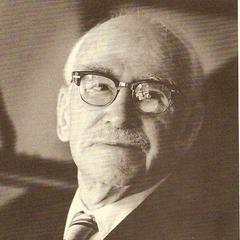David Hume Quotes - Page 13
David Hume, Tom L. Beauchamp (2007). “A Dissertation on the Passions: The Natural History of Religion : a Critical Edition”, p.70, Oxford University Press
David Hume (2016). “Delphi Complete Works of David Hume (Illustrated)”, p.634, Delphi Classics
David Hume, Eric Steinberg (1993). “An Enquiry Concerning Human Understanding ; [with] A Letter from a Gentleman to His Friend in Edinburgh ; [and] An Abstract of a Treatise of Human Nature”, p.111, Hackett Publishing
David Hume (2015). “A Treatise of Human Nature: Illustrated”, p.786, eKitap Projesi via PublishDrive
David Hume (1758). “Essays and Treatises on Several Subjects”, p.402
David Hume (1758). “Essays and Treatises on several subjects, etc. New edition”, p.305
David Hume (1758). “Essays and Treatises on several subjects, etc. New edition”, p.411
David Hume, Tom L. Beauchamp (2006). “An Enquiry Concerning the Principles of Morals: A Critical Edition”, p.20, Oxford University Press
David Hume (1826). “And the human understanding. An inquiry concerning the principles of morals. Appendix. The natural history of religion”, p.530
David Hume (2015). “A Treatise of Human Nature”, p.463, David Hume
David Hume (1751). “An Enquiry Concerning the Principles of Morals”, p.30
David Hume (2015). “A Treatise of Human Nature: Top Philosophy Collections”, p.5, 谷月社
David Hume (1826). “The Philosophical Works: Including All the Essays, and Exhibiting the More Important Alterations and Corrections in the Successive Ed. Publ. by the Author”, p.463
David Hume, J. B. Schneewind (1983). “An Enquiry Concerning The Principles of Morals”, p.15, Hackett Publishing
David Hume (2013). “An Enquiry Concerning the Principles of Morals”, p.71, Simon and Schuster
David Hume (1825). “Essays and treatises on several subjects: essays, moral, political and literary”, p.180
David Hume (2013). “Essays and Treatises on Philosophical Subjects”, p.214, Broadview Press
David Hume (2016). “The History of England, vol. 1~6, Completed: Revision of Great Book”, p.2565, VM eBooks
David Hume (1825). “Essays and treatises on several subjects: An inquiry concerning human understanding. A dissertation on the passions. An inquiry concerning the principles of morals. The natural history of religion”, p.258
David Hume (2016). “Delphi Complete Works of David Hume (Illustrated)”, p.695, Delphi Classics
A Treatise upon Human Nature bk. 2 (1739)
David Hume (2015). “A Treatise of Human Nature: Top Philosophy Collections”, p.339, 谷月社
David Hume (2016). “A Treatise of Human Nature: Revision of Great Book”, p.180, VM eBooks







